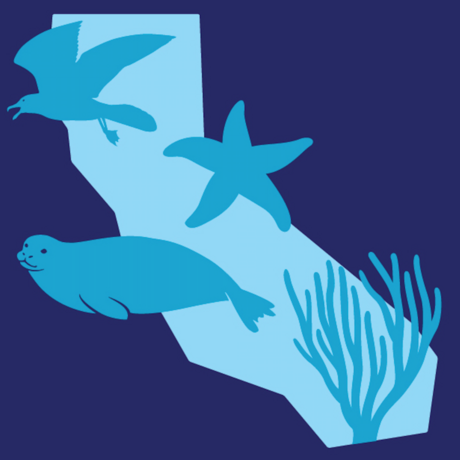Get involved with community science by attending an upcoming bioblitz or participating in the City Nature Challenge!

Founded in 1853, the Academy has its roots in documenting and understanding California biodiversity. Today, we’re working with volunteers to build a new, comprehensive picture of where plants and animals occur in California. Building this new baseline will allow us to compare our findings to our historic collections, constructing a dataset that can be used to measure further change—and to help our partners plan for it. At the same time, we’re building a corps of highly engaged and active community scientists.
City Nature Challenge

Started by community science staff at the Natural History Museum of Los Angeles and California Academy of Sciences, the City Nature Challenge is an international effort for people to find and document plants and wildlife in cities across the globe. It’s a bioblitz-style competition where cities are in a contest against each other to see who can make the most observations of nature, who can find the most species, and who can engage the most people. This year, there are over 120 competing cities on six continents; the competition is fierce!
Snapshot Cal Coast

Snapshot Cal Coast is a California statewide effort to document our coastal biodiversity and hold a series of bioblitzes up and down the California Coast, focusing on intertidal zones in marine protected areas (MPAs). We will be working together with the MPA Collaborative Network and other partners to create a "snapshot" in time of where species are located along our coast. So dig out your rubber boots and come join us in the tidepools!
Intertidal Biodiversity Survey at Pillar Point

In partnership with the Gulf of the Farallones National Marine Sanctuary, the California Academy of Sciences is documenting the biodiversity of Pillar Point Reef through large-scale bioblitzes, long-term community science monitoring, and casual observation. Our community scientists have documented over 570 species, building a baseline species list for Pillar Point and coming closer to understanding the effects of environmental impacts like Starfish Wasting Disease.
LEARN CitSci

The Learning and Environmental science Agency Research Network for Citizen Science (LEARN CitSci) is an international, collaborative project aiming to study how youth learn and gain agency through natural history museum-led community science projects. Along with the natural history museums of LA and London and learning researchers at UC Davis, Oxford University and Open University, the California Academy of Sciences is working to understand how community science can better serve youth and empower the next generation of scientists.
California Biodiversity Day

We're teaming up with the California Natural Resources Agency, State Parks, and the Department of Fish and Wildlife to celebrate California's extraordinary biodiversity. 2019 marked the first official celebration of California Biodiversity Day, a holiday created to recognize the state's biodiversity and inspire folks to connect with the nature near them. Check back here for updates on upcoming celebrations!
Urban Biodiversity Inventories

Nine cities and towns across the country participated in a project using the Urban Biodiversity Information Framework (UBIF) to develop new ways to inventory their biodiversity using the iNaturalist app. The Academy Community Science team partnered on an implementation plan and creation of new tools for cities to conduct inventories that follow the guidelines of the UBIF. This collaborative work was funded by the Urban Sustainability Directors Network (USDN). The tools and resources developed were created as part of an USDN Innovation Fund grant to the City of San Francisco’s Department of the Environment with matching funds from the Presidio Trust and the seedfund.
Our former team members are doing great things
Dr. Giovanni Rapacciuolo is now the Director of Applied Science Programs at NatureServe. He was the Biodiversity Scientist on our team from 2018-2021. He analyzed data and building models and tools to use community collected biodiversity data from the California Coast to understand and illuminate change through time and over space. You can see a few of his tools here, here, and here. We published this paper. 'Deriving indicators of biodiversity change from unstructured community-contributed data' in 2021.
Annie Miller is now a graduate student at the Yale School of the Environment. She was the Citizen Science Program Coordinator and Data Specialist on our team from 2017-2021. Annie was the main researcher and coordinator on our LEARNCitSci Project. In addition, she fostered partnerships with youth-serving organizations throughout the Bay Area, managed our website and external communications, and worked on developing anti-racist practices for our team.
To sign up, click here
The work we do utilizes iNaturalist to make biodiversity observations while building community around nature. It's a community-powered website and app that makes it easy to upload and share your observations in the field and to get help from other users with flora and fauna IDs.
A selection of videos, articles, and press that offer a closer look at community science at the Academy.
Have questions about our community science programs? Want to get involved? Email us at communityscience@calacademy.org.
Academy community science is led by Rebecca Johnson.